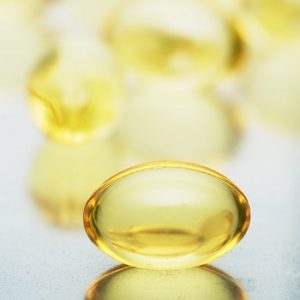
More evidence that low-calorie sweeteners are bad for your health
Studies show that artificial sweeteners can raise the risk of hypertension, metabolic syndrome, type 2 diabetes and heart disease, including stroke.

Natural Health News — New evidence suggests that heavier people with metabolism syndrome face some hurdles when it comes to getting enough vitamin E.
According to experts in the Linus Pauling Institute, these individuals need more than normal levels of the vitamin because their weight and other problems are causing increased oxidative stress, but those same problems actually cause their bodies to use vitamin E less effectively.
As a result, a huge number of people may be chronically deficient in vitamin E, which could compound the wide range of diseases known to be associated with metabolic syndrome, including heart disease, diabetes, Alzheimer’s disease and cancer.
» Vitamin E is a fat soluble antioxidant nutrient ad this has led researchers to assume that overweight people probably have enough of it in their bodies.
» This small study suggests this ma not be true. Since vitamin E appears to be poorly absorbed into body tissues of obese people with metabolic syndrome.
» This inability to absorb vitamin E leaves people with metabolic syndrome at higher risk of a range of diseases associated with oxidative stress such as heart disease, cancer, diabetes and Alzheimer’s.
Metabolic syndrome affects more than one out of every three adults in the US – and one in four in the UK and Australia. It is diagnosed when a person has at least three of five common issues that raise health concerns — excess abdominal fat, high blood pressure, low “good” cholesterol, and/or high levels of blood sugar and triglycerides.
In this study, the researchers looked at a small group of adults, some of whom were healthy and others with metabolic syndrome.
Some of the findings of this study are counterintuitive, the researchers said, because vitamin E is a fat soluble micronutrient and, in theory, should be available at increased levels in people who are overweight and eat large amounts of fatty foods.
However, the study in the American Journal of Clinical Nutrition found that even though circulating vitamin E in the bloodstream may be high, in obese people this essential micronutrient is not finding its way into tissues where it is most needed.
Not getting into vital tissues
Vitamin E attaches itself to lipids, or the fats found in the blood – essentially acting like a passenger as these fats circulate throughout the body.
“What we found was that tissues of obese people are rejecting intake of some of these lipids because they already have enough fat,” Traber said. “In the process they also reject the associated vitamin E. So even though the tissues are facing serious oxidative stress, the delivery of vitamin E to them is being impaired, and they are not getting enough of this important micronutrient.” said Maret Traber, a professor in the College of Public Health and Human Science at OSU, and a principal investigator in the Linus Pauling Institute.
Fat generates oxidants that increase metabolic stress, Traber said. Vitamin E, along with vitamin C and some other antioxidants, are natural dietary defenses against this problem. However she notes, for example, that millions of Americans – more than 9% by some measures – eat a diet deficient in vitamin E, often about half the desired amount. It’s found at highest levels in some foods such as nuts, seeds, and olive oil.
Low fat diets make the problem worse
“Another concern is that when people try to lose weight, often the first thing they do is limit their fat intake,” Traber said. “This may make sense if you are trying to reduce calories, but fat is the most common source of vitamin E in our diets, so that approach to weight loss can sometimes actually worsen a nutrient deficiency.”
The authors concluded that its findings support higher dietary requirements of vitamin E for adults with metabolic syndrome.
A reasonable approach, Traber said, would be to try to eat a balanced and healthy diet, even if attempting to lose weight, while also taking a daily multivitamin that includes 100% of the recommended daily allowance of vitamin E, which is 15mg per day. It’s also important to eat some food containing at least a little fat when taking a supplement, because otherwise this fat-soluble vitamin – in the form found in most dietary supplements – will not be well-absorbed.

Please subscribe me to your newsletter mailing list. I have read the
privacy statement